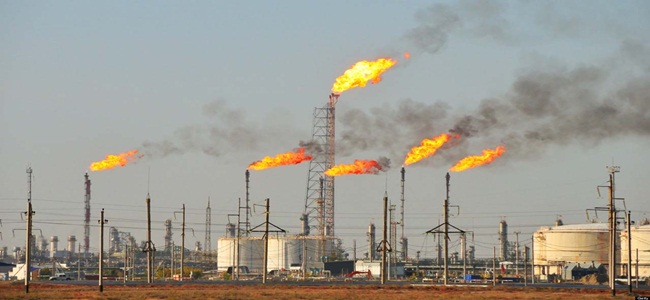Nigeria’s gas reserves increased by 7.3 percent from 187 trillion cubic feet (tcf) to 200.79 tcf, according to the Director of the Department of Petroleum Resources (DPR), Mordecai Ladan.
He stated this at a technical workshop with the theme: “Gas Utilisation in Nigeria: Challenges, Opportunity and Outlook,” organised by Society of Petroleum Engineers (SPE), Lagos branch, in Lagos on Wednesday.
Ladan, who was represented by Deputy Manager, Gas Division of DPR, Mr. Olawale Ogunsola, said, “national gas reserves rose to 200.79 trillion cubic feet as at January 1, 2019, and that is what should be quoted going forward.”
Read: DPR Permits Categories, Requirements & Cost
He said Nigeria was considered as a gas producing nation because of its potential unproven of gas reserves which were more than its crude oil reserves.
The director said the country’s daily gas production stood at 1.2 billion standard cubic feet (scuf) with 41 percent of the daily production exported while 48 percent went to the domestic market, and 11 percent was being flared.
“We have got greater potential if we are to increase the volume of gas reserves growth. It is very strategic to keep growing the reserves in order to boost export.
“We found our gas reserves by accidental exploration. So, a dedicated gas exploration is very important and that’s part of the regulatory initiatives of the DPR.
“It is also important to boost domestic gas supply to boost power supply.
Read: Business/ Company Registration in Nigeria
“DPR will keep working with industry stakeholders to meet gas supply obligations and always crave for your cooperation,” he said
Ladan said there was a need for collaboration among industry stakeholders to ensure effective market operations in the sector.
He urged all operators to support the Federal Government’s plan to end gas flaring by supporting the Nigerian Gas Flare Commercialisation Programme (NGFCP).
“The NGFCP is designed as the strategy to implement the policy objectives of government for the elimination of gas flares with potentially enormous multiplier and development outcomes for Nigeria.
“The objective of the NGFCP is to eliminate gas flaring through technically and commercially sustainable gas utilisation projects developed by competent third-party investors,” he added.
The director said the investors would be invited to participate in a competitive and transparent bid process.
He said: “the commercialisation approach has been considered from legal, technical, economic, commercial and developmental standpoints.
Read: Oil & Gas Permits and Certificates You Need to Operate in Nigeria
“It is a unique and historic opportunity to attract major investment in economically viable gas flare capture projects whilst permanently addressing a 60-year environmental problem in Nigeria.”
Source: DPR website

